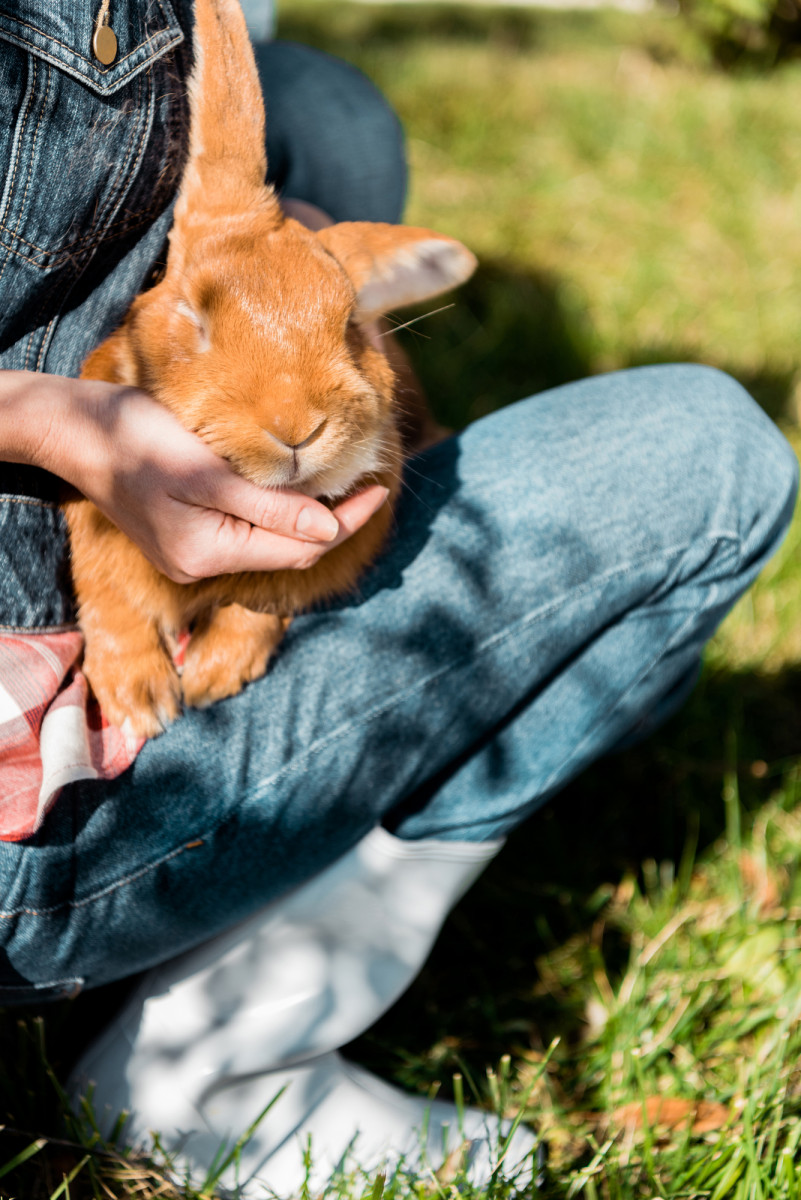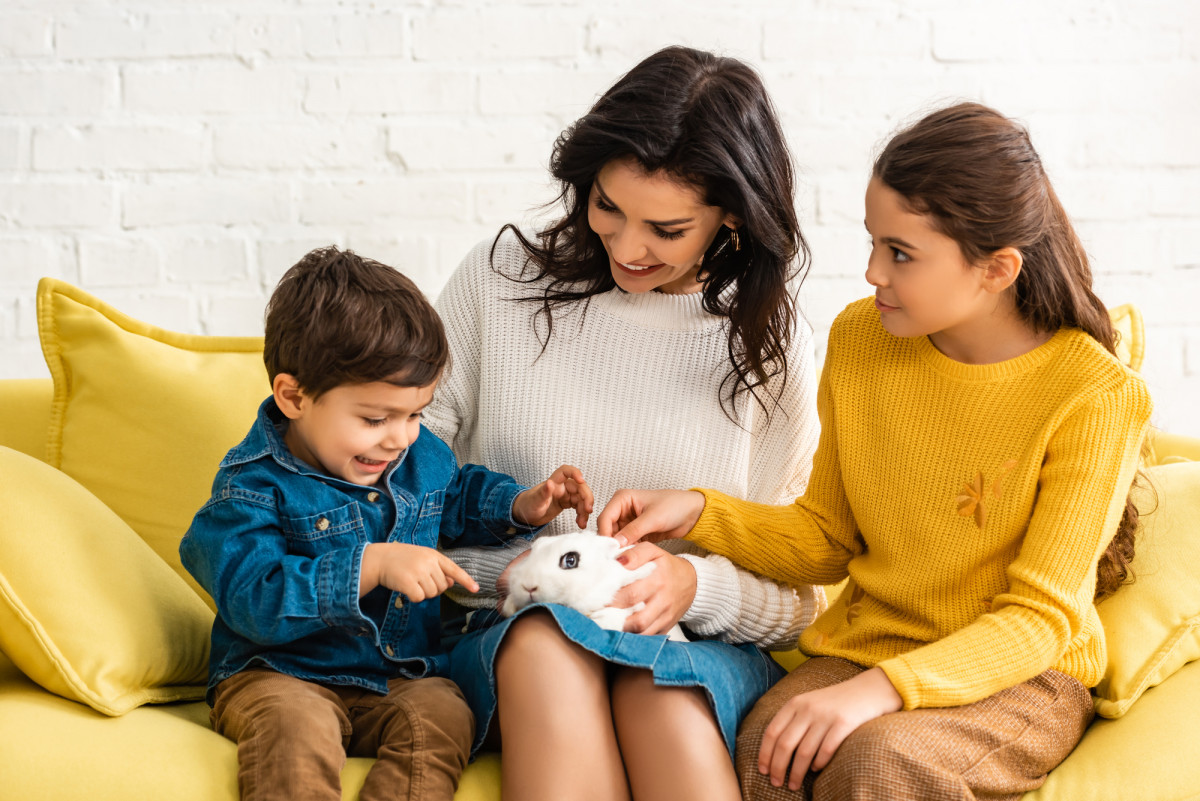One of the first questions that come to your mind when you see a large piece of watermelon is, “do Rabbits like it?” It’s one of the most common fruits that are loved by rabbits, but there are a few important facts that you need to know before bringing it home. Watermelon is a great source of sugar, vitamins, beta-carotene, and lycopene, so your rabbit will love it!

Good source of vitamins
Rabbits require a number of vitamins to remain healthy and vibrant. These vitamins are divided into two categories: fat-soluble and water-soluble. Each one has a different role in the body, and a deficiency of anyone can lead to a variety of symptoms.
An excess of any one vitamin can even be toxic. For optimal rabbit health, a balanced diet is essential. Fortunately, there are many foods that provide rabbits with ample amounts of vitamins and minerals.
A good source of vitamins for rabbits is fibre. It keeps teeth and gums healthy and is good for the skin and gut. Fat is also good for rabbits because it helps them absorb vitamins. Vitamins A, D, E, and K are all soluble in fat.
Some people feed fat to show bunnies because it makes their coats shinier. But make sure to choose a healthy source of vitamin C for your rabbit.
Pineapple is another excellent source of vitamin C for rabbits. Often thrown away, the center contains an enzyme called bromelain. It relieves diarrhea in rabbits and reduces intestinal fluid release. Bromelain also helps with hairballs during molting. Fresh pineapple centers have higher levels of this enzyme than frozen ones. Just be sure to offer small amounts to your rabbit as a treat.
Watermelon is a good source of sugar
While it may sound tempting to feed your rabbit a high-calorie treat, this is not a healthy option. Although it contains a high amount of sugar, the digestive system of a rabbit cannot process too much sugar, and excessive consumption can cause intestinal blockage, tooth decay, and obesity.
Moreover, excessive consumption of watermelon can cause your rabbit to refuse its regular food. Instead, you should limit the amount of watermelon your rabbit is fed and limit the amount you give it.
Apart from sugar, watermelons contain many beneficial nutrients. They help prevent heart disease and prevent kidney stones. They are also high in fiber, which helps regulate the gastrointestinal tract and prevent constipation.
If you’re considering feeding your rabbit watermelons, remember to follow the instructions for the preparation of watermelons. For best results, you should use fresh, ripe fruit.
One thing you should keep in mind is that watermelon seeds contain a high amount of sugar. You should only feed your rabbit watermelon one to two times a week. Watermelons should not form a major part of your rabbit’s diet.
In fact, they should not comprise more than ten percent of their daily food intake. Therefore, you should limit the amount of watermelon your rabbit consumes to one tablespoon per two pounds of body weight. Moreover, watermelon seeds are hard, slimy, and slippery.
Watermelon is a good source of beta-carotene
Carrots are a great source of beta-carotene for your bunnies, which can be converted to Vitamin A. Vitamin A is a crucial component in good eyesight, and beta-carotene provides your rabbit with protection from some of the leading causes of blindness, macular degeneration, and cataracts. This is why carrots make a great food for rabbits.
When purchasing carrots for your pet, look for those that are bright orange and firm. The deeper the orange, the more beta-carotene the carrot contains. Also, avoid those with cracks or a rubbery stem end.
These are signs of aging and are not as nutritious. In addition to carrots, rabbits also benefit from eating certain dairy products, including pumpkin. Some rabbits also prefer orange-colored treats.
Vitamin A, D, and E are essential nutrients for rabbits. They are required in small amounts by the body, but have different needs based on their life stage.
A deficiency in any of these nutrients can cause poor reproductive performance, and excesses can result in fluid deposits on the brains of the offspring. Excessive amounts of any vitamin can be toxic. Fortunately, alfalfa is a good source of beta-carotene for rabbits.

Watermelon is a good source of lycopene
Lycopene is a plant nutrient with antioxidant properties. It is responsible for giving fruits and vegetables their distinctive red or pink color. This nutrient has been linked with heart health, protection from sunburns, and protection against certain forms of cancer.
Lycopene belongs to the carotenoid family of antioxidants. It protects against free radicals, which can damage cells and cause oxidative stress, which in turn can lead to chronic diseases.
Tomatoes contain lycopene, a compound that helps prevent cell damage and may help prevent heart disease in rabbits. Similarly, the fruit is a good source of fiber, which is important for a rabbit’s diet.
However, it should be noted that tomatoes contain toxins. Rabbits are not capable of recognizing the signs of toxicity. To avoid toxic reactions, keep the amount of tomato in your rabbit’s diet to a few slices a week.
Rats ingest lycopene in a variety of forms. Lycopene is absorbed into the body in seven to ten percent and then is excreted in the urine. Rats fed with a lycopene-containing diet showed the highest lycopene concentrations, compared to those that received a lycopene-free diet.
Watermelon is a good source of choline
Eggs are a good source of choline for rabbits. Unlike dietary supplements, eggs contain choline naturally. This substance is bound to phospholipids, which are hydrophilic compounds that are readily absorbed by the digestive tract.
Rabbits are able to absorb choline from egg yolks better than dietary supplements. Soybeans, for instance, are high in choline. They also contain protein and other essential nutrients.
Quinoa is a good source of choline, as it can be mixed with other foods to create a variety of tasty meals. Cooked quinoa mixed with ground chicken, broccoli, and red potatoes is a good source of choline, as is cottage cheese.
Cottage cheese is also a protein-rich food, providing 39 mg of choline per cup. Cottage cheese also contains choline and other important nutrients, including calcium, selenium, riboflavin, and vitamin B12.
A good source of choline for rabbits is found in a range of vegetables and fruit. Rabbits need to eat plenty of hay to prevent blockages in their digestive tract. This can be dangerous for their health.
A rabbit’s diet should consist of a variety of healthy foods. A good source of choline for rabbits will keep your rabbit happy and healthy. If you don’t have a green thumb, you can try giving twigs from apple trees. These are rich in choline and will improve your rabbit’s sleep.
Watermelon can cause stomach upset
If your rabbit is constantly licking and chewing on their food, it could be suffering from a gastrointestinal illness called GI stasis. This is a serious condition that requires immediate medical attention.
The rabbit may eat hay or veggies, but won’t immediately eat pellets. The best course of action is to contact your veterinarian for an examination. In some cases, the condition may even be the cause of other problems.
Luckily, GI stasis in rabbits is treatable. Early treatment is the key to reversing this condition, which can cause a bunny’s abdomen to balloon, but if not treated, it can lead to the euthanasia of the rabbit.
The stomach is so bloated that the bunny’s intestines cannot empty properly. While it’s possible for a rabbit to pull through a catheter procedure, the chances of survival are slim.
Medical treatment includes painkillers, fluid therapy, or surgical intervention. The latter involves passing a tube through the mouth into the stomach, which may require general anesthesia.
If you’ve found that your rabbit’s gastrointestinal tract has become blocked, a surgeon may perform an exploratory laparotomy to investigate the cause.
A veterinarian may perform this procedure if it is unstable and requires surgery. In some instances, the obstruction is too large to be removed through a catheter, so you’ll need to perform it in the rabbit’s case.
Avoid if your rabbit has diarrhea, bloating or other stomach upsets
If your rabbit exhibits signs of diarrhea, bloating, or other stomach upsets, you should visit a veterinarian as soon as possible. The following medications may help the animal deal with the problem.
Antibiotics are often prescribed based on Grams stain or culture results and observation of large amounts of gas in the cecum. Medications for deworming are also sometimes prescribed, but they must be given intravenously if the animal is critically ill.
Commercially prepared products can also be used. If you can’t administer antibiotics, you should consider supplementing your rabbit with Benebac, a product that is available at feed stores and health food stores.
Dietary changes may cause diarrhea in rabbits. The best way to determine the cause of your rabbit’s diarrhea is to observe it closely. The symptoms of diarrhea can be the result of an imbalance in the body’s fecal output, a metabolic upset in other organs, or even a parasitic infection. These changes should be noted in your rabbit’s medical history, which can help your veterinarian find the cause of the problem.

Hi! I’m Lala, and I’m the owner of RabbitLala.com. When I’m not writing about rabbits, I enjoy traveling, trying out new recipes and enjoying my hobbies.
I’ve always loved animals, so it was no surprise when I started a website devoted to one specific animal: rabbits! Rabbits are amazing creatures, and there’s so much to learn about them.
I love traveling and trying out new recipes, and my hobbies include crocheting and painting.
